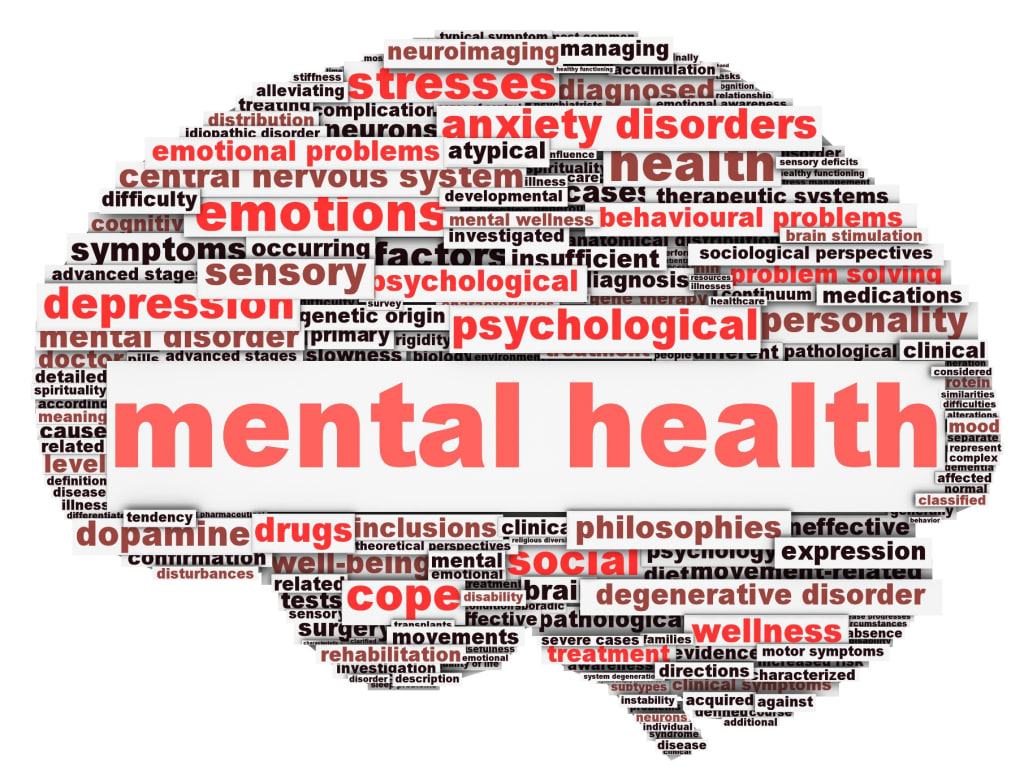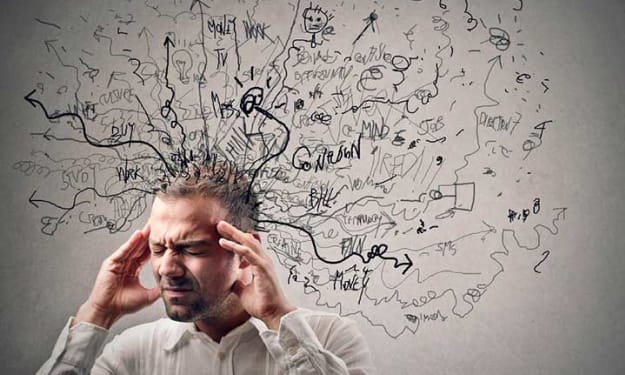People Have Not Been Properly Educated: Mental Illness
Society has not been properly educated about mental illness.

I can taste every passive aggressive remark like the bile in my throat. On any given Facebook post, I could claim that two plus two is unequivocally the distance between the sun and the moon, give esoteric information backing my conclusion with six supporting details and a graph, and still some dubious individual would argue that two plus two is equivalent to a square circle left to ferment in peanut butter with not even a glimmer of logic to support it. I say this because I would be as close to educating the masses that two plus two, in fact, equals four as opposed to show how absolutely pointless it is to reason with the unreasonable. People are doing the same with mental illness, they romanticize it, confuse one diagnosis with another, and they fake it without a glimmer of logic to understand it. People are uneducated.
Commonly known as Obsessive Compulsive Disorder, OCD is an ego-dystonic mental illness characterized by a repetitious need to commit to one or a myriad of prudently calculated habit(s) with an obsessive need to complete them. People often confuse OCD with OCPD otherwise known as Obsessive-compulsive personality disorder which is characterized by perfectionism and the obsessive need for order and punctuality. OCD was once classified as an anxiety disorder linked to emotional stress leading into obsessive-compulsive behaviour as a coping mechanism but instead, it was shifted into a new category known as OCRD’s or Obsessive-compulsive and related disorders which includes hoarding disorder, body dysmorphic disorder, excoriation disorder, and trichotillomania. This was newly instated in the new edition of the DSM or the Diagnostics and Statistical Manual of Psychological Disorders. The ignorance is both tragic and morose considering what it truly means to suffer from OCD or OCPD, the severity of one's symptoms define the mental illness, not the collection. Symptoms are tell-tale, but as people, we are inherent of them. We portray symptoms, but as I have said, it is the severity that defines a deficit in our cognitive function.
Speaking of confusing personality disorders with other severe mental illnesses, borderline personality disorder or BPD is often confused with Manic Depression. Actually more specifically, the symptom. BPD, a disease where the sufferers are more often a woman than a man, once defined as a subset of Schizophrenia, the victims struggle with mood swings that generally alternate between joy and anger whereas sufferers of Manic Depression suffer from alternating states of mind known as “mania” and “major depression.” Each state of mind usually lasts about a week or more and have alternating extremes. People with bipolar disorder function relatively easy in society even though it is hard to treat. Generally, people who are bipolar are taking antidepressants for their depressed state but won’t take them when they’re in a manic state because the medication necessary for the mental illness may make them feel stoic or “like a zombie.”
But we must not forget the crudest of all of them: Society often confuses dissociative identity disorder or multi-personality disorder as schizophrenia or rather vice versa due to stigma. Coming from a word that means “split mind,” people have mistaken the symptoms as more or less a split in human personality rather than a split in reality. It’s easy to understand why and how the two disorders are mixed up considering that a split mind might very well be an apt description of split identity but this simply is not the case. Sufferers of this disease often experience visual and/or auditory hallucinations, delusions that are usually persecutory, and a myriad of other symptoms including depression, anxiety, social isolation, vague or jumbled speech, irritability, etc. Whereas individuals suffering from dissociative identity disorder often experience the presence of more often than not two or more personalities. They suffer from an altered consciousness as a sort of a coping mechanism to dealing with something traumatic.
I would often, and I have done this more than I can count, give people the benefit of the doubt that perhaps it’s too much to ask, but then I think that it can’t possibly be too much of a burden to remember a few simple symptoms. People are uneducated about mental illness and how it affects its sufferers. We need to be able to spot the disabled and understand that they are not in the right of mind. Not to excuse them, of course, but to understand the sufferers have dealt with an enormous inconvenience and that the universe given sleight of hand has rendered them incapable of sometimes even the simplest of tasks. People with schizophrenia suffer from disorganized thinking and jumbled thoughts and sometimes the sufferers literally forget to do the smallest of tasks such as brushing your teeth or eating. Society has not been properly educated about mental illness and it is up to our educational system to provide us with the necessary tools to identify and accurately care for those with a compromised mental state. In some cases, yes, even care for those who had been affected by someone with a mental illness.
About the Creator
Nathaniel Reidhead
Hey everyone, call me Nathan. I am a student at MSSU and I am a psychology major. I love to write stories and poetry and even essays.






Comments
There are no comments for this story
Be the first to respond and start the conversation.